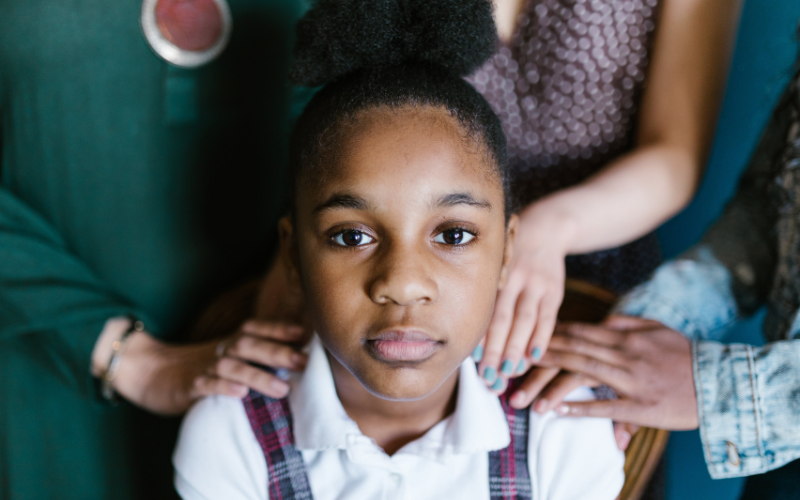
Female Genital Mutilation (FGM) is a practice internationally recognised as a violation of the human rights, the health and the integrity of girls and women. This is an issue that happens around the world and the United Nations believes an awareness of the topic as well as comprehensive Relationships and Sex Education can help lead to the elimination of this practice altogether.
What is Female Genital Mutilation?
The NSPCC define FGM as follows, “FGM is when a female’s genitals are deliberately altered or removed for non-medical reasons. It’s also known as ‘female circumcision’ or ‘cutting’, but has many other names.”
FGM is a dangerous form of child abuse and a criminal offence in the UK. While FGM is primarily concentrated in 30 countries mainly in Africa and the Middle East, it is a universal issue. FGM is also practiced in some Asian and Latin Amercian countries and continues to persist amongst immigrant populations living in Western Europe, North America, Australia and New Zealand.
Why is Female Genital Mutilation Practiced?
Here are a few reasons why FGM remains a cultural practice:
- Transition to womenhood: FGM is seen as a rite of passage for girls to become women.
- Bride price: Girls who have undergone FGM may receive a higher ‘bride price’ (in exchange for her hand in marriage).
- Purity: There is an assumption that removing the clitoris stops a woman from having sexual desires.
- Beauty and cleanliness: It’s a myth that a woman is more clean and more beautiful if she undergoes FGM.
- Tradition: There is often pressure to continue a traditional family practice.
Female Genital Mutilation in the UK
There are even cases of FGM in the UK. In 2019, a woman who mutilated her three-year-old daughter became the first person in the UK to be found guilty of FGM. Since April 2015, The NHS England has identified 33,590 individual women and girls who are victims of FGM in the UK.
In a case study from the UK Government, a survivor of FGM spoke of how it’s carried out on women and girls living in the UK:
“Many families in Britain take girls to their country of origin to have FGM carried out. It is a holiday, they see family and the countryside and are then “circumcised”. When they return, they tell the girl not to talk about it. They say the Government will take her away from her family, and that she will lose all she has in the UK.” – Bint al-Sultan – Manor Gardens
Some Facts about Female Genital Mutilation
Here are some things we know about FGM:
- There is no medical reasons for FGM
- The person performing the “procedure” often has no medical training
- They use non-sterile instruments such as knives, scalpels, scissors, glass or razor blades leading to infections and other health complications
- This practice often happens to children who are rarely given anaesthetic or antiseptic treatment
- The girls are often forcibly restrained during the procedure
- It causes long lasting damage physically, mentally and emotionally
Bint al-Sultan described her experience with FGM and some of the complications that arose from the “procedure”:
“The equipment they use is handmade: a sharp curved knife which is not sterilised. And I was given no anaesthetic. They left a little hole for urination. There were no stitches but they treated the wound with herbs, salt and water. It bled a lot and I was in great pain. I was horribly frightened and crying.
I came to the UK to study and about the same time suffered a great deal of bleeding and pain, so I went to hospital. It turned out that when they carried out the procedure they left part of one of my labia inside me, so the UK doctors operated to get rid of it.” – Bint al-Sultan – Manor Gardens
The Intersections of FGM and RSHE
Relationships, Sex and Health Education (RSHE) requires a nuanced approach when it comes to talking about cultural practices, such as FGM. FGM is often stems from deep cultural and traditional beliefs surrounding femininity, purity and community acceptance. It is important for educators to understand that when discussing aspects of RSHE there is a potential impact of cultural norms on the experiences of students within their school.
Discussing FGM within the RSHE framework can pose unique challenges; educators need to be sensitive to others cultural beliefs, while also provide accurate information about the harms associated with FGM and UK laws around the practice.
RSHE in schools provide the perfect opportunity to raise awareness of FGM and support the elimination of this harmful practice. By giving young people a safe space to discuss such issues and promoting an understanding that respects individual choices, we can advocate for the elimination of harmful practices and focus on educating about female rights, consent and healthy relationships. It also means with give women more bodily autonomy and helps us move away from ideas of FGM as a form of female purity or culturally necessary.
How Comprehensive RSHE can help Eliminate FGM
Part of highlighting RSHEs role in preventing harmful practices such as FGM, involves emphasizing the role of education in promoting awareness, fostering critical thinking, and creating a foundation for respectful and informed decision-making.
Here are some tips for how you can do this effectively:
Information and Awareness
Include FGM in your RSHE curriculum and explicitly address the topics with accurate and age-appropriate information. At Life Lessons, we have created resources and lessons on FGM, we also have filmed experts on the subject to support your teachers to deliver accurate information including the law on FGM.
What is Female Genital Mutilation (FGM)?
Alya Harding, Founder and FGM Activist, discusses what FGM is.
Alya Harding is an activist who is committed to fighting against Female Genital Mutilation (FGM). She is a Young Ambassador for the End FGM organization and a Campaign Officer for Send My Friend to School.
Empowering Decision-Making
Highlight that one purpose of RSHE is to equip students with the knowledge to make informed decisions and to develop critical thinking skills allowing them to evaluate cultural practices and question harmful traditions.
Promoting Gender Equality
Address gender norms which can contribute to practices like FGM and empower girls and young women to make their own choices about their bodies. Everyone should have autonomy over their bodies.
Healthy Relationships and Consent
RSHE teaches effective communication which is crucial when addressing topics such as consent and body autonomy. RSHE is also the perfect place to discuss respectful and consensual relationships.
Legal and Ethical Considerations
It is vital to make students aware of the legal implications to harmful practices like FGM as well as the importance of ethical discussion. Encourage students to consider the impact of cultural practices on human rights and individual well-being. Once again, we want to be sensitive to cultural traditions and beliefs while also ensuring harmful practices are addressed.
By intergrating these tips into your RSGE curriculum, RSHE becomes a powerful tool in preventing harmful cultural practices like FGM. Creating an environment where students are informed, empowered and equipped to challenge these traditions is paramount to eliminating this practice altogether.
Resources and Support
NSPCC Female Genital Mutilation: Helpline 0800 028 3550 or email: help@NSPCC.org.uk
National FGM Centre: FGM Resources – National FGM Centre
NHS National FGM Support Clinics: National FGM Support Clinics – NHS – NHS
Childline: Helpline 0800 1111 Childline | Childline



